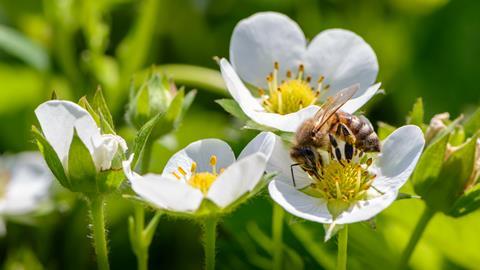Research shows how RSPB’s Fair to Nature certification can help growers, food businesses and consumers to “restore the balance of nature in farming” – and benefit from that
Over half (56 per cent) of adults want UK farmers to adopt farming practices which preserve and enhance the environment and nature, according to new research commissioned by the food and farming certification scheme Fair to Nature.
The survey, conducted by Ipsos, also reveals a widespread lack of knowledge of the terms ‘regenerative’, ‘sustainable’ or ‘nature-friendly’ farming, with only two in 10 saying they either know this type of farming “very well” or know a “fair amount” about it. Despite this, these terms have been on the rise amid an increase in conscious consumerism.
As the industry looks to meet this demand, the RSPB Fair to Nature report, entitled Without Nature There is no Food, was launched on 9 January, demonstrating how the certification can help farmers, food businesses and consumers to “restore the balance of nature in farming”.
Mark Varney, head of Fair to Nature, said: “These results highlight that UK consumers want our food and agricultural system to be a power for good, helping protect and preserve our landscape and wildlife. This is a golden opportunity for food businesses to adopt nature-friendly farming and food production to respond to their customers’ wants and needs.”
However, he recognised that making sense of what this means in practice can be confusing, “especially with buzzwords such as ‘regenerative’ and ‘sustainable’ hitting our shelves”.
The findings build on similar Ipsos research commissioned by the RSPB in March 2023 highlighting growing consumer concern about nature loss and a desire to halt its decline. This found that 67 per cent of UK adults were concerned with the decline in the variety of UK wildlife compared to 50 years ago.
Compiled by experts from the RSPB’s Fair to Nature scheme, which claims to be the UK’s only certification scheme with a major focus on biodiversity, the report looks at the role of nature in underpinning farmers’ ability to do business.
“From providing raw materials and energy, to the food, water, and clean air we need to survive, nature is the foundation of every aspect of human life,” the RSPB said. “Biodiversity loss means these vital services are under threat.”
The report suggests that if every farm made 10 per cent of its land available for good quality wildlife habitat, nature on farms could be restored and protected.
“By restoring the balance of nature in farming and increasing biodiversity, farmers reap the benefits of the RSPB Fair to Nature standard, with increased pollinator numbers, improvements in soil quality and a reduction in the volume of chemicals required,” the RSPB said.
The organisation added that its standard has already achieved strong results: one farm has seen a 226 per cent increase in breeding birds, a 213 per cent increase in farmland butterflies, almost double the floral diversity, and up to 19 times more bees than typical farms.
Food brands and other food businesses who support RSPB Fair to Nature and agree to buy from certified farms can display the RSPB Fair to Nature logo on the packaging of certified products.
“The time is now for food brands, caterers and supermarkets to step up and really take committed action to encourage farmers to become certified,” Varney urged.
The launch of the report is supported by a free hour-long free webinar taking place on Tuesday 16 January at 12.30pm. Sign up here.




